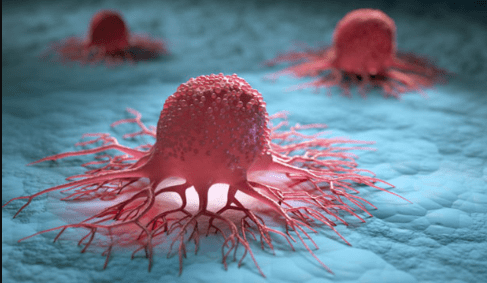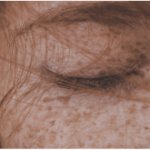Cancer-
Cancer refers to any one of a large number of diseases characterized by the development of abnormal cells that divide uncontrollably and have the ability to infiltrate and destroy normal body tissue. Cancer often has the ability to spread throughout your body. Cancer is the second-leading cause of death in the world. But survival rates are improving for many types of cancer, thanks to improvements in cancer screening, treatment and prevention.
Cancer is a broad term. It describes the disease that results when cellular changes cause the uncontrolled growth and division of cells. Some types of cancer cause rapid cell growth, while others cause cells to grow and divide at a slower rate. Most of the body’s cells have specific functions and fixed lifespans. While it may sound like a bad thing, cell death is part of a natural and beneficial phenomenon called apoptosis. A cell receives instructions to die so that the body can replace it with a newer cell that functions better. Cancerous cells lack the components that instruct them to stop dividing and to die. As a result, they build up in the body, using oxygen and nutrients that would usually nourish other cells. Cancerous cells can form tumors, impair the immune system and cause other changes that prevent the body from functioning regularly. Cancerous cells may appear in one area, then spread via the lymph nodes. These are clusters of immune cells located throughout the body.
Symptoms
Signs and symptoms caused by cancer will vary depending on what part of the body is affected.
- Fatigue
- Lump or area of thickening that can be felt under the skin
- Weight changes, including unintended loss or gain
- Skin changes, such as yellowing, darkening or redness of the skin, sores that won’t heal, or changes to existing moles
- Changes in bowel or bladder habits
- Persistent cough or trouble breathing
- Difficulty swallowing
- Hoarseness
- Persistent indigestion or discomfort after eating
- Persistent, unexplained muscle or joint pain
- Persistent, unexplained fevers or night sweats
- Unexplained bleeding or bruising
- Heavy alcohol Consumption
- Poor Nutrition

Is Cancer Genetic?
A person’s genetic code tells their cells when to divide and expire. Changes in the genes can lead to faulty instructions, and cancer can result. Genes also influence the cells’ production of proteins, and proteins carry many of the instructions for cellular growth and division. Some genes change proteins that would usually repair damaged cells. This can lead to cancer. If a parent has these genes, they may pass on the altered instructions to their offspring. Some genetic changes occur after birth, and factors such as smoking and sun exposure can increase the risk. Other changes that can result in cancer take place in the chemical signals that determine how the body deploys, or “expresses” specific genes.
Only a small portion of cancers are due to an inherited condition. If cancer is common in your family, it’s possible that mutations are being passed from one generation to the next. You might be a candidate for genetic testing to see whether you have inherited mutations that might increase your risk of certain cancers. Keep in mind that having an inherited genetic mutation doesn’t necessarily mean you’ll get cancer.
Treatments
- Chemotherapy aims to kill cancerous cells with medications that target rapidly dividing cells. The drugs can also help shrink tumors, but the side effects can be severe.
- Hormone therapy involves taking medications that change how certain hormones work or interfere with the body’s ability to produce them. When hormones play a significant role, as with prostate and breast cancers, this is a common approach.
- Immunotherapy uses medications and other treatments to boost the immune system and encourage it to fight cancerous cells. Two examples of these treatments are checkpoint inhibitors and adoptive cell transfer.
- Precision medicine, or personalized medicine, is a newer, developing approach. It involves using genetic testing to determine the best treatments for a person’s particular presentation of cancer. Researchers have yet to show that it can effectively treat all types of cancer, however.
- Radiation therapy uses high-dose radiation to kill cancerous cells. Also, a doctor may recommend using radiation to shrink a tumor before surgery or reduce tumor-related symptoms.
- Stem cell transplant can be especially beneficial for people with blood-related cancers, such as leukemia or lymphoma. It involves removing cells, such as red or white blood cells, that chemotherapy or radiation has destroyed. Lab technicians then strengthen the cells and put them back into the body.
- Surgery is often a part of a treatment plan when a person has a cancerous tumor. Also, a surgeon may remove lymph nodes to reduce or prevent the disease’s spread.
- Targeted therapies perform functions within cancerous cells to prevent them from multiplying. They can also boost the immune system. Two examples of these therapies are small-molecule drugs and monoclonal antibodies.
Doctors will often employ more than one type of treatment to maximize effectiveness.
Prevention
- Stop Smoking
- Avoid excessive sun exposure
- Eat a healthy diet
- Exercise most days of the week
- Maintain a healthy weight
- Drink alcohol in moderation, if you choose to drink
- Schedule cancer screening exams


